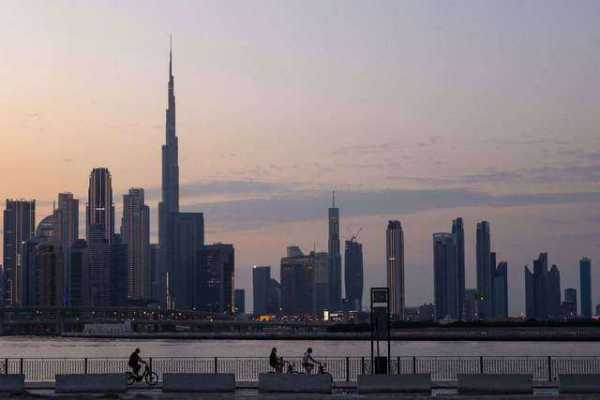
Throughout history, many cities have emerged as centres of global trade and influence. Baghdad, for example, was a hub of learning and culture during the Abbasid Caliphate, influencing much of the world. Venice in the 13th century was a key player in Mediterranean trade. London and Paris rose during the Industrial Revolution, becoming global capitals that shaped modern finance, art, and politics.
A “global city” is not merely about skyscrapers and diverse populations. It is about serving as a critical node in the world's economic, political, and cultural sphere, influencing and being influenced by the waves of globalisation.
At its core, a global city is a place where capital, people, ideas, and culture flow seamlessly. Here are some key features:
Achieving global status, however, is not merely about physical transformation. A city must also cultivate a global mindset. It must address challenges such as sustainability and housing affordability to ensure its growth benefits all its residents equally.
While global cities are flush with wealth and opportunities, these also come with a set of challenges.
The concentration of wealth and opportunities created in global cities may cause income inequality that pushes out lower-income residents. The problem becomes acute when the wealth and opportunities remain inaccessible to segments of the national population who witness the city’s allure being seized by outsiders. This may carry significant social risks, if not mitigated.
The rising population can strain resources, leading to issues like congestion, which may become a nightmare for residents and tourists and a costly issue for governments to deal with.
Demand for property from both locals and international investors drives up housing prices, making it difficult for middle- and low-income families to afford to live in the city.
The ability of a global city to attract people from across the world may lead to the erosion of the local culture. The extent to which a city is prepared to compromise on its culture identity and values in order to meet the requirements of globalisation is a topic of ongoing social debate.
Over the past few decades, Dubai has transformed from a coastal town to a regional trading hub and, subsequently, to a global city. It leveraged its geographic location, invested in iconic infrastructure like the Burj Khalifa, and created business-friendly policies. It has built its reputation as a hub for international trade, tourism, and business, attracting millions of expatriates from across the globe. Approximately 90 per cent of the population consists of expatriates, making it a city of unparalleled diversity.
Global cities are melting pots of cultures and communities. In some ways, Dubai does resemble a melting pot. Its immigrant populations are purely a product of global capital as opposed to geographically normal migration flows. Its economy is deeply interwoven with the contributions of multiple nationalities. Cultural exchange is visible in food and public celebrations. Dubai actively celebrates its diversity through festivals such as Eid, Diwali, Christmas, and Chinese New Year, reflecting the various traditions of its residents. The city’s culinary landscape is a testament to its diversity, offering everything from authentic Emirati dishes to Indian street food, Italian fine dining, and East Asian specialties.
While it is undoubtedly one of the most culturally diverse cities in the world, with over 200 nationalities living and working there, the metaphor of a “melting pot” may not accurately capture the way Dubai’s multicultural society operates.
Although Dubai fosters a sense of global community, its society tends to function in parallel cultural streams rather than as a fully integrated melting pot. The city’s social dynamics lean more toward a mosaic model, where different communities retain their unique cultural identities while coexisting peacefully.
Unlike Western countries, every community maintains its own culture. Expatriates often cluster in neighbourhoods based on nationality, socio-economic status, or shared cultural preferences. While not officially segregated, these neighbourhoods reflect the tendency of cultural groups to gravitate toward familiar social environments. Cultural interaction between expatriates and Emiratis, as well as between different expatriate groups, is often limited to professional or formal settings.
Dubai provides a space where diversity thrives and distinct cultures are valued. In a world grappling with cultural tensions, the emirate stands as an example of how diversity can coexist with respect and coexistence.
Does the status of a global city pose challenges for Dubai?
In my view, the challenges that Dubai faces are multifaceted. The number one priority is for Dubai to preserve its unique Arabic cultural heritage, ensuring that local traditions thrive alongside global trends. Rising to global standards does not necessarily mean compromising on local heritage and values.
The rule of law is a cornerstone of any well-functioning society, and in a global city like Dubai, it plays a critical role in fostering economic growth, social stability, and international confidence.
Dubai has aligned itself with international legal standards in areas like arbitration, intellectual property, and anti-money laundering, making it a trusted hub for global commerce.
An equitable and robust legal system will be key to sustaining Dubai’s success. You cannot claim to be a global city when residents cannot criticise a restaurant for fear of repercussions or when an accused does not have access to legal representation throughout the proceedings.
As the world becomes increasingly interconnected, the role of global cities will continue to evolve. Global cities must address pressing issues like traffic congestion, rising housing costs and pressure on local identity to maintain their status.
The social impacts of global cities, both positive and negative, remind us that globalisation affects people in deeply personal and profound ways. As Dubai looks to the future, the question is how it will adapt to the responsibilities of being truly global.